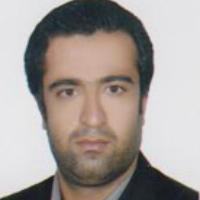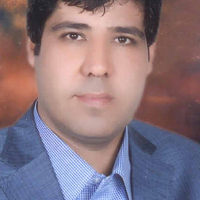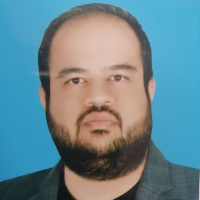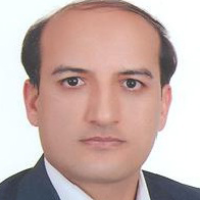مظفر حسنوند
-
هدفسلفی گری در جهان اسلام و عرب از دهه 1990 تاکنون یکی از مهم ترین مباحث سیاسی به ویژه در حوزه اندیشه سیاسی و سیاست و حکومت در غرب آسیا و شمال آفریقا بوده است. تعدد و برآمدن ده ها جریان سلفی در دوره متاخر، منجر به بازبینی مکرر جریان های سلفی به ویژه در کشورهای پیش رو در بیداری اسلامی مانند تونس شده است. این مقاله به دنبال آن است تا زمینه های ظهور و برآمدن جریان های سلفی در کشور تونس در بین سال های 2011 تا 2022 را بررسی کرده و ضمن واکاوی مهم ترین جریان های سلفی -به جز قرائت دموکراتیک النهضه- آرا و عقاید فکری، سیاسی و زمینه های اختلاف و انشعاب آن ها را در مرکز توجه قرار دهد.روشروش پژوهش توصیفی-تحلیلی و شیوه گردآوری مطالب کتابخانه ای و اینترنتی است.یافته هایافته های پژوهش بیانگر آن است که، نخست، چهار زمینه مشترک در پدیدار شدن و ظهور جریان های سلفی قابل ذکر است: حذف از حوزه عمومی و سیاسی و فقدان عقلایی سازی، مسئله ضعف دینی و مسائل امنیتی، مشکلات اجتماعی و اقتصادی. دوم، سنت سلفی در دو جریان منفعل سکوت گرا و فعال سیاسی تداوم یافته است: سنت سکوت گرا (خاموش، علمی یا منفعل) و سنت جهادی فعال سیاسی در جریان هایی چون حزب الرحمه (نزدیک ترین به النهضه)، صره التایید (نزدیک به انصارالشریعه) و انصارالشریعه.نتیجه گیریجریان سکوت گرا عمدتا پس از حوادث 2015 به روش سنتی خود یعنی گرایش به اسلام غیر سیاسی و تبلیغ مسائل دینی، عقیدتی و اخلاقی پرداخت. ولی جریان پرنفوذتر انصارالشریعه با حذف از حوزه عمومی قدرت پس از حوادث تروریستی متعدد و عدم توانمندی در ارائه الگوی سیاسی و فکری مورد پذیرش به دنبال بازیابی مجدد خود برای حضور و سهیم سازی در قدرت خواهد بود، که با توجه به عدم انسجام معنایی این جریان در سطح اندیشگی و فقدان توانمندی در عقلایی سازی سیاسی، بعید به نظر می رسد، این هدف -حداقل در دهه های حاضر- محقق شود.کلید واژگان: جریان سلفی, تونس, سلفی سکوت گرا, سلفی فعال سیاسی, انصارالشریعهPurposeSalafism in the Islamic and Arab world has been one of the most important political topics since the 1990s, especially in the field of political thought and politics and governance in the Middle East and North Africa. The multiplicity and emergence of dozens of Salafi currents in the recent period have led to frequent revision of Salafi currents, especially in countries leading the Arab revolutions such as Tunisia. This article seeks to examine the contexts of the rise of Salafist movements in Tunisia between 2011 and 2022, and while analyzing the most important Salafist movements - except for the democratic reading of Ennahda - opinions. intellectual, political and the areas of their differences and divisions in the center of attention.MethodThis research has examined its data with the descriptive-analytical research method and collected the sources using library and internet materials.FindingThe findings of the research show that, first, four common areas in the emergence and rise of Salafi currents can be mentioned: exclusion from the public and political sphere and lack of rationalization, the issue of religious weakness and security issues, social and economic problems. Second, the Salafist tradition has continued in two passive and politically active currents: the quietist tradition (silent, academic or passive), and the politically active Jihadi tradition in such movements as Hizb al-Rahmah (closest to Ennahda), Sarrat al-Tayid (closest to Ansar al-Sharia) and Ansar al-Sharia.ConclusionThe silence trend mainly after the events of 2015, in its traditional way; It means tending to non-political Islam and promoting religious, ideological and moral issues. But the more influential movement of Ansar al-Sharia, after being removed from the public sphere of power after numerous terrorist incidents and the inability to present an acceptable political and intellectual model, will seek to regain its presence and share in power, which due to the lack of coherence The meaning of this current at the level of thought and the lack of ability in political rationalization, it seems unlikely that this goal will be realized - at least in the current decades.Keywords: Salafi Movement, Tunisia, Silent Salafi, Politically Active Salafi, Ansar Al-Sharia
-
بررسی وضعیت کنونی جریان های سیاسی پس از انقلاب های عربی به ویژه در تونس، یکی از موضوعات چند وجهی، پیچیده و چند لایه در مطالعات سیاسی به خصوص در حوزه اندیشه سیاسی است. در همین راستا، با توجه به تحولات جریان النهضه تونس در بین سال های 2011-2023 (آگوست) این پرسش مطرح شده است که با توجه به سنت فکری اندیشه ای جریان النهضه، الگو و رفتار سیاسی این جریان، از کدام سنت فکری و سیاسی تحول دموکراتیک مدنی با قرائتی اسلامی یا تعدیل و عدول از گزاره های اندیشه اسلامی پیروی می کند؟ در پاسخ، فرضیه مطروح بیانگر آن است که سنت فکری جریان النهضه از الهیات و اندیشه کلاسیک به اصلاحی جدید با قرائت اسلام دموکراتیک مدنی سوق یافته است. یافته ها بیانگر آن است که این جریان تحت تاثیر تحولات اندیشه ای در پاسخ به دوگانه غرب / اسلام و معمای سنت و مدرنیته، سنت های فکری مانند مکتب عقل گرای الزیتونیه و روشنفکران اصلاح گرا (عام) قرار گرفته است و از الهیات کلاسیک به پروبلماتیک اصلاحی گرایش یافته است. از منظر تجربی، عناصر سازنده الگوی تئوریک و روشی جریان النهضه، بیانگر رویکردی مستمر و نسبتا یکدست هستند و وجوه سکولار و مدنی آن اشتراکاتی را با جریان های غیر اسلام گراهای تونسی سامان داده است. با گذار موفق این جریان از مرحله نخست چالش ها (عبور از انصارالشریعه و اجماع های اجتناب ناپذیر گاها ناپایدار)، مرحله دوم، پس از انحلال پارلمان و برگزاری دور دوم انتخابات پارلمانی 2019 آغاز شد و دور تازه ای از رقابت ها شکل گرفت. به تبع آن، جریان النهضه تلاش دارد تا استبداد «فرا قانونی» و غیر دموکراتیک دولت قیس سعید را به سمت سیاست های دموکراتیک یا واگذاری قدرت سوق دهد. چارچوب مفهومی بر اساس قرائتی چند سطحی از اندیشه سیاسی (تحولات اندیشه ای، جریان ها و نظام های فکری و روشنفکران متاخر هر یک از گفتمان ها) و استخراج مولفه ها و عناصر تاثیرگذار جهت ارزیابی موضوع می باشد؛ شیوه گردآوری مطالب نیز کتابخانه ای و اینترنتی است.کلید واژگان: اسلام گرایی, مدرنیته, سکولاریسم, دموکراسی, تونس, النهضهInvestigating the current state of political currents after the Arab revolutions, especially in Tunisia, is one of the multifaceted, complex, and multi-layered issues in political studies, especially in political thought. In this regard, according to the developments of the Ennahda movement in Tunisia between the years 2011-2023 (August), the question has been raised that according to the intellectual tradition of the Ennahda movement, the model and political behavior of this movement, from which rule. Philosophical and political - civil democratic transformation with an Islamic reading or adjustment and deviation from the propositions of Islamic thought? In response, the proposed hypothesis states that the intellectual tradition of the Ennahda movement has moved from classical theology and thought to a new reform with the reading of civil democratic Islam. The findings indicate that this current has been influenced by the intellectual developments in response to the dualism of the West / Islam and the mystery of tradition and modernity, intellectual traditions such as the rationalist school of Al-Zaytouniyeh, and reformist (general) intellectuals. It is oriented from classical theology to reform problematic. From an empirical point of view, the constituent elements of the theoretical and methodical model of the Ennahda movement represent a continuous and relatively uniform approach, and its secular and civil aspects share commonalities with Tunisian non-Islamist movements. With the successful transition of this process from the first stage of challenges (passing Ansar al-Sharia and inevitable - sometimes unstable - consensuses), the second stage began after the dissolution of the parliament and the holding of the second round of the 2019 parliamentary elections, and a new game It was formed from competitions. As a result, the Ennahda movement is trying to push the "extra-legal" and undemocratic dictatorship of the Qais Saeed government towards democratic policies or transfer of power. The conceptual framework is based on a multi-level reading of political thought (ideological evolutions, currents and intellectual systems, and late intellectuals of each discourse) and extraction of influential components and elements to evaluate the issue; the method of collecting materials is library and internet.Keywords: Islamism, modernity, secularism, Democracy, Tunisia, The Ennahda Movement
-
تروریسم از مهم ترین مفاهیم عرصه نظری و عملی ساست بین الملل محسوب میشود. هدف این پژوهش تحلیل جایگاه تروریسم در سیاست خارجی آمریکا در منطقه خاورمیانه است. این مقاله با تفکیک سطوح سیاستهای اعلامی و نتیجه گرایی و با بهره گیری از مفهوم نهادمندی و دموکراسی در وضعیت دوران گذار و ارتباط آن با رویکرد پراگماتیسمی سیاست خارجی آمریکا به دنبال پاسخ به این سوال است که تروریسم چه جایگاهی در سیاست خارجی آمریکا بعد از 11سپتامبر داشته است؟ بر همین اساس فرضیه پژوهش چنین است؛ بعد از 11سپتامبر، سیاست خارجی آمریکا بر اساس سنت پراگماتیستی و رویکردی ابزاری به بهره برداری از تروریسم برای دستیابی به منافع خود پرداخته است. یافته های پژوهش نشان میدهند که نخست، 11سپتامبر کلید مشروعیت بخشی خشونت و مداخله گرایی بهشکل جنگ های پیش دستانه به بهانه مقابله با تروریسم بوده است و آمریکا به جای استراتژی مقابله، آن را فرصتی عاقلانه قلمداد کرده است؛ دوم، بین استراتژیهای امنیت ملی آمریکا، مقابله با تروریسم، حمایت از دموکراسی در خاورمیانه (در شکل گزینشی،) جنگ پیشدستانه ارتباط وجود دارد و دموکراسی مشروعترین ابزار پراگماتیستی در کنار مدیریت تروریسم است و میتواند اسلام را با تروریسم پیوند بزند؛ سوم، سنت پراگماتیستی سیاست خارجی آمریکا با تمسک به ابزار تروریسم، به اهداف متعدد خود دست یافته است که عبارتاند از دفاع از دموکراسی و ارزشهای لیبرالی از سوی آمریکا در کشورهای در حال گذار (انتقال) خاورمیانه، دستیابی به بازار نفت خاورمیانه و فروش تسلیحات.
کلید واژگان: سیاست خارجی آمریکا, تروریسم, پراگماتیسم, دموکراسی, خاورمیانهTerrorism is one of the most important concepts in the theory and practice of international politics. This article aims to analyze the place of terrorism in U.S. foreign policy in the Middle East. Distinguishing levels of declared policies and utilitarianism and drawing upon institutionalism and democracy in transitional period and their relationship with pragmatism in U.S foreign policy, this article seeks to answer the following question: what place does terrorism occupy in U.S. foreign policy after 9/11? As a hypothesis, this article argues that after 9/11 based on pragmatist tradition and instrumentalist approach, U.S. foreign policy has used terrorism as an instrument to protect its national interest. The research method used in the article is descriptive-explanatory. The findings include that First, 9/11 has been a legitimizing key for violence and intervention in U.S. foreign policy in the form of preemptive wars on terror. Second, there is a relationship among U.S. national security strategies, counterterrorism, support for democracy in the Middle East (in a selective form), preemptive wars and U.S. leadership. Democracy is a legitimating instrument for management of terrorism and it can link Islam to terrorism. Third, U.S. foreign policy’s pragmatist tradition, by using the instrument of terrorism, has attained multiple goals such as defending democracy and liberal values in the Middle East transitional countries, access to the Middle East oil market and arms sales.
Keywords: U.S. Foreign Policy, Terrorism, Pragmatism, Democracy, MiddleEast -
مشارکت سیاسی از نشانه های مهم توسعه سیاسی است که کم و کیف و قالب های آن از جامعه ای تا جامعه دیگر متفاوت است. تحقق مشارکت سیاسی و نهادینه شدن آن مستلزم وجود آمادگی ها و شرایط روحی - روانی، اجتماعی، فرهنگی، اقتصادی و سیاسی خاص هر جامعه است. هدف از انجام این پژوهش، بررسی تاثیر عوامل اجتماعی و فرهنگی موثر بر مشارکت سیاسی دانشجویان در تشکل های حزبی و سیاسی است. عواملی همچون رسانه ها، انجمن ها، شبکه های اجتماعی و گروه دوستان. روش پژوهش پیمایشی و کمی با استفاده از فن پرسش نامه است. جامعه آماری هم همه دانشجویان شاغل به تحصیل در سه مقطع کارشناسی، کارشناسی ارشد و دکتری در سال 1395 هستند. پژوهش حاضر درصدد پاسخ دادن به این پرسش است که رسانه های جمعی اعم از کلاسیک و جدید، داخلی و بین المللی، شبکه های اجتماعی و عوامل یا متغیرهای اجتماعی مانند گروه دوستان و عضوشدن و همکاری با انجمن ها تا چه اندازه بر گرایش و مشارکت سیاسی جوانان در احزاب و تشکل های سیاسی تاثیر می گذارند. نتایج پژوهش نشان می دهند به ترتیب، دسترسی و ارتباط فعالانه با شبکه های اجتماعی در فضای سایبری، گروه دوستان، عضوشدن در انجمن های مدنی و داوطلبانه، رسانه های داخلی و درنهایت رسانه های خارجی (رادیو و تلویزیون های ماهواره ای) بر تمایلات و مشارکت سیاسی دانشجویان دانشگاه شیراز در احزاب و تشکل های سیاسی تاثیر مثبت و معنی داری داشته اند.کلید واژگان: رسانه ها, سرمایه اجتماعی, مشارکت سیاسی, انجمن ها, دانشگاه شیرازIntroductionPolitical participation is one of the most important signs of political development, which its quality and format differs from society to society. The realization of institutionalization and political participation requires the preparation of the psycho-social, cultural, economic and political conditions of each society. The purpose of this research is to investigate the impact of effective social and cultural factors, such as media, associations, social networks and friendship groups, on the political participation of students in political and party organizations. Quantitative and qualitative studies have shown that modern and classical media have been influential in political parties and political and civil formations. Today, modern communication and information technologies are considered as the driving engine of political, economic and cultural globalization and the spread of democracyMaterial & MethodsThe research method is quantitative by using a questionnaire technique. Political participation is one of the fundamental requirements of citizenship and is one of the indispensable necessities of the political system in the twenty-first century and one of the main indicators of political development. This research is also based on a survey method and a questionnaire technique for collecting data and information. Dependent variable and some independent variables are measured based on the Likert spectrum. SPSS software was used to analyze the data; In order to extract the effect of each independent and intermediate variables on the dependent variable, Amos 22 software was used to analyze the paths. The statistical population in this study was Shiraz University students whose number in the academic year (1396) was about 16 thousand.Discussion of Results & ConclusionsThe present research try to answer this question that which one of the below factors (mass media, both classical and new, domestic and international, social networks and factors or social variables such as friends' groups and membership and cooperation with associations) has the most effect on the young people's political orientation and participation in parties and political organizations? The findings of present research indicate that the effects of media and virtual network with the intermediation of the association and friends on political participation are generally significant, up to the virtual network 0.110 and its lower limit is 0.040 that are both directional and its coefficient is 0.01. Also, the internal media has upper limit 0.0257 and bottom limit 0.0127 and significant is 0.01. The external media also has a high level of 0.042 and a low of 0.005 and its significant coefficient is equal to 0.02, which confirms the assumption that associations and friends have a mediating role in relation to the predictor variables of political participation. All relationships are meaningful. Internal media has the most impact on the community. The impact of it is 0.603, as well as the virtual network, has the highest impact after the medium, with a coefficient of 0.476. Interestingly, the virtual network has the greatest impact on political participation among variables. The group also has a significant impact (0.288) on the political participation. The results of the research indicate that, respectively, access and active communication with social networks in cyberspace, group friends, membership in civic and voluntary associations, domestic media and, ultimately, foreign media (radio and satellite television) on the tendencies and political participation of students at Shiraz University in political parties and political organizations have a positive and meaningful effect. The important role here is that the influence of the media on associations and friends that interfere with political participation. Of course, media are also directly affected. The importance of the media in the world today, especially in the broader field of policy, can be very effective in the process of community participation, especially political participation.Keywords: Media, Social Capital, Political Participation, Societies, Shiraz University
-
با اختتام دوره جنگ سرد، مسایل پیچیده و جدیدی مانند تضعیف عاملیت قدرت و امنیت نظامی، افزایش کنشگران غیردولتی و ظهور بازیگران جدید بین المللی و منطقه ای رخ داد و منطقه گرایی به عنوان چشم انداز و پارادایمی نوین مورد بازبینی قرار گرفت و این پرسش مطرح شد که «آیا با وجود تحولات جدید در سیستم بین الملل، تحول شبه پارادایمی در منطقه گرایی نوین به وجود آمده است؟ در این راستا دیدگاه رهیافت های تیوریک جدید به منطقه گرایی چگونه بوده است؟» در پاسخ این فرضیه مطرح گشت که «اکنون منطقه گرایی از مهم ترین مسایل سیاست بین الملل بوده و در سطوح مختلف نسبت به نوع کلاسیک متحول شده است». همچنین، در این موضوع رهیافت های شبکه ای، ساختارگرایی، سیستم های تابعه، امنیت منطقه ای و نظریات متاخر، برخلاف نگرش های ریالیستی، دیدگاه های جدید و متنوعی را مطرح کرده اند.
کلید واژگان: منطقه گرایی جدید, نظم جهانی, سیستم تابعه, امنیت منطقه ای, دیدگاه شبکه ایBy the end of the Cold War New and complex issues such as undermining the military power and security agency, The rise of NGOs and the emergence of new international and regional actors it came into being and regionalism was revised as a new perspective and paradigm. Therefore, the question has been raised that despite new developments in the international system, has the quasi -paradigm shift emerged in modern regionalism? In this way, how new theoretical approaches look at regionalism. In response to the hypothesis that, regionalism is one of the most important issues in international politics and has evolved at different levels than the classic. also, Contrary to realistic attitudes, new and varied perspectives have been put forward by networking approaches, structuralism, subsidiary systems, regional security, and later theories.
Keywords: New Regionalism, World Order, Subsidiary System, Regional security, Network Perspective -
فضای پس از توافق هسته ای منجر به شکل گیری نظمی نوین و دیدگاه های متنوع درباره هویت، قدرت و نفوذ منطقه ای جمهوری اسلامی ایران شده که در پی آن سعودی ها و رژیم صهیونیستی بیش از دوران قبل از پساتحریم به تعامل، مقابله و صف آرایی امنیتی مقابل قدرت مضاعف ایران پرداختند. ما در این پژوهش با بهره گیری از نظریه سازه انگاری در راستای پاسخ به این سوال اصلی برمی آییم که فضای پساتحریم چه تاثیراتی را بر روابط سعودی- صهیونیستی در مقابل جمهوری اسلامی ایران بر جای گذاشته است. در پاسخ به سوال اصلی این فرضیه مطرح می شود که فضای پساتحریم، معادلات هویتی متخاصم و برساخته قدرت را بین جمهوری اسلامی ایران و عربستان و رژیم صهیونیستی بیش از گذشته شدت بخشیده است. براساس فرضیه مطروح، یافته های پژوهش عبارتند از اشتراکات و تعاملات صهیونیستی- سعودی در نگاه به ایران پس از توافق، تلاش برای برجسته نمودن و برساخته نمودن نقش خشونت محور انگاره های شیعی ایران در منطقه، بهم پیوستگی آموزه های سعودی با برساخته های گروه های تکفیری نظیر داعش، ائتلافهای ساختگی در برابر قدرت منطقه ای جمهوری اسلامی ایران و حرکت واشنگتن در مسیر افراط گرایی سعودی و برساختگی فراروایت های مطرح است. روش تحقیق بکار رفته توصیفی – تحلیلی و روش گردآوری مطالب کتابخانه ای و اینترنتی می باشد.کلید واژگان: توافق هسته ای, پساتحریم, رژیم صهیونیستی, ایران, عربستان, خاورمیانهAfter the nuclear deal era has led to emergence of a new order and different point of views about identity of power and regional authority of Iran and following that, Saudis and Zionists started to interact with each other, and tried to resist and rally against dual power of Iran more than before. In this paper, efforts have been made to respond to this question by utilization of constructivist theory that what effects has post-sanctions era had on the Saudi-Zionist affected the relations against Iran? To answer this main question, a hypothesis is raised that post-sanctions era has intensified identity of hostile equations and constructed equation of power between Iran and Saudi-Zionist more than ever. Based on the hypothesis stated, the findings of the study are: Saudi-Zionist interactions and commonalities in Iran’s view after Nuclear Agreement, effort for accentuating and construction of violence-based role of Shiite ideas of Iran in the region, reunion of Saudi Teachings with constructions of Takfiri Groups like ISIS, false regional alliances against regional authority of Iran and Washington Movement toward Saudi Extremism direction and construction of raised metanarratives. The used method in this paper is descriptive-analytical and the method for collecting data is library-internet basedKeywords: Nuclear Agreement, Post Sanctions, Zionist Regime, Iran, Saudi Arabia, Middle East
-
تا قبل از برنامه جامع اقدام مشترک در ژوییه 2015 ، در طول یک دهه برنامه هسته ای ایران تاثیرات متعددی را بر فضای ذهنی و رفتاری کنش گران خاورمیانه بر جای گذاشت. بررسی ابعاد مختلف برنامه هسته ای به ویژه از منظر ارتباط و تاثیر آن بر نظم منطقه ای خاورمیانه از دو جهت حایز اهمیت است. نخست از منظر جایگاه و اهمیت توافق هسته ای در سیاست خارجی به ویژه در نظم منطقه ای خاورمیانه به نسبت دوران پیشا برجام. دوم توجه به ذهنیت کنش گران منطقه ای در مسیر شکل دادن سیاست خارجی و درک رابطه پیوندی و سیستمی بین موضوعات سیاست خارجی با محیط منطقه ای و بهره گیری از آن به عنوان تجربه ای مهم در دیپلماسی جمهوری اسلامی ایران. بر همین اساس در مقاله اخیر در راستای پاسخ به این سوال اصلی برآمده ایم که برنامه هسته ای ایران چه تاثیراتی را بر نظم منطقه ای خاورمیانه 2005-2013 بر جای گذاشته است. در پاسخ این فرضیه مورد تحلیل قرار گرفته است که برنامه و دیپلماسی هسته ای ایران(تا قبل از توافق) منجر به تهدید پنداری و تقویت ذهنیت متخاصم کنش گران منطقه ای و تقابل ها در نظم منطقه ای خاورمیانه شده است که می توان در نمونه های مختلفی آن را مشاهده نمود که عبارتند از: مسابقه تسلیحاتی، جلوگیری از صدور افکار انقلابی ایران به عنوان تهدید منافع غرب و اعراب، اجماع واحدها جهت انزوای ایران، صف آرایی امنیتی برای مقابله با منافع و تحریم همه جانبه جمهوری اسلامی ایران. روش پژوهش توصیفی - تحلیلی و شیوه گردآوری داده ها نیز کتابخانه ای، استفاده از مجلات، مقالات معتبر می باشد.
کلید واژگان: خاورمیانه, برنامه هسته ای ایران, مسابقه تسلیحاتی, امنیت, انزوا گرایی, تحریمBefore the Comprehensive Joint Action Plan in July 2015, over a decade, the nuclear program of Iran left many influences on mental and behavioral atmosphere of the Middle East. Considering the different dimensions of the nuclear program, especially in terms of its relevance and its impact on the regional order of the Middle East, is important in two directions. First, in terms of the place and significance of the nuclear agreement in foreign policy - especially in the Middle East regional order - comparable to the period before BARJAM. Second, attention to the regional actors’ mindset on the path of shaping foreign policy and understanding the linkage and systemic relationship between foreign policy issues and the regional environment and exploiting it as an important experience in the diplomacy of the Islamic Republic of Iran. Accordingly, in the recent article, in response to this central question, we ظseek to answer the question that “what are the Iranian nuclear program impacts on the Middle East regional order (2005-2013)?” In response, this hypothesis has been analyzed that Iran’s nuclear program and diplomacy (before the agreement) has led to threatening and reinforcing the hostile mentality of regional actors and contradictions in the regional Middle East order which can be seen in various instances, including arms races, the prevention of the issuance of Iranian revolutionary thoughts as a threat to the interests of the West and the Arabs, the consensus of the units to isolate Iran, the security queue to confront the all aspects of interests and the sanctions of the Islamic Republic of Iran. The research method is descriptive-analytical and data collection method is also the library, the use of journals and valid articles.
Keywords: The Middle East, Iran’s nuclear program, the arms race, security, isolationism, sanctions -
هدف اصلی این مقاله آن است تا با واکاوی دو دیدگاه مسلط سیاسی یا حقوقی در باب ماهیت برجام و ترکیب آن با عوامل تاثیرگذار در سطح منطقه ای و بین المللی دلایل چالش برانگیز بودن این توافق را نشان دهد. دو خوانش متباین در مورد ماهیت و تضمینهای توافق هسته ای وجود دارد: دیدگاه نخست معتقد است که تضمین های برجام باید بر اساس منابع حقوق بین الملل تعهدآور باشد و از این رو طرفین توافق رفتارهای یکدیگر را در فضای پسابرجامی در ذیل یک معاهده حقوقی دنبال می کنند. دیدگاه دوم با اتخاذ دیدگاهی متفاوت و با توجه به متن توافق هسته ای و قطعنامه 2231 اعتقاد دارند که توافق هسته ای و تضمین های آن در ذیل توافقات سیاسی قرار دارد و این خود از نکات مثبت توافق محسوب می شود. این مقاله با اتکا به روش توصیفی-تبیینی و با هدف واکاوی این تفاسیر و اعتقاد به این نکته که چالش های پیش روی اجرای برجام ناشی از عدم اتقان حول ماهیت این توافق است به دنبال ارائه پاسخ به این سوال است که توافق هسته ای (برجام) به لحاظ ماهوی دارای زمینه و فضایی سیاسی است یا حقوقی و تضمین های ناشی از آن در ذیل کدامیک قرار دارد؟ از اینرو، با اتخاذ رویکردی سه سطحی و با روشی توصیفی-تبیینی و مفروض گرفتن تفاوت معرفتی بین دو حوزه مطالعات حقوقی و سیاسی، در قالب فرضیه معتقد است که توافق هسته ای یا برجام دارای ماهیتی سیاسی است نه حقوقی.کلید واژگان: برجام, حقوق بین الملل, ایران, سیاست خارجی, قانون اساسیToday, multiple interpretation on JCPOA has been one of the contentious issues before Iran an U.S foreign policies. Generally, we are observing two readings about enforcement of JCPOA: the first approach argues that the agreement has a legal nature and hence, it is subject to the rules of international law. Therefore, two sides of the agreement are watching each others behavior under a legal treaty. The second approach emphasizing on the texts of the agreement and 2231 resolution argues that nuclear agreement and its enforcement are subject to political negotiations and agreements. And this is a positive point of the agreement. Employing descriptive explanatory research method, this article regarding lack of consensus on the nature of Irans Deal is going to answer this question whether nuclear agreement (JCPOA) and its enforcements have a political or legal nature. The findings of the article regarding epistemic differences between legal and political studies as the assumption show that the agreement and its enforcement have a political nature, not a legal one.Keywords: Nuclear Agreement, International Law, Iran, Foreign Policy, Constitutional Law
-
بی شک، موضوع هسته ای ایران یکی از مهم ترین موضوعات تاریخ دیپلماسی بوده که اهمیت آن در دهه اخیر باعث شد تا دو عرصه سیاست داخلی و خارجی ایران تحت تاثیرش قرار بگیرند. شروع بحران هسته ای از بیانیه سعدآباد تا برجام، راهبردهای متعددی را برای نخبگان ایران بر جای گذاشت و مآلا، باید این دوران را در یک سیر مرتبط با محیط های منطقه ای مورد ارزیابی قرار داد. در این پژوهش، به این سوال اصلی پاسخ خواهیم داد «که دیپلماسی هسته ای ایران در بستر زمانی «2015- 1997» ، چه راهبردها و الگوهای رفتاری را از منظر نظری جیمز روزنا (با تاکید بر متغیر محیط منطقه ای) در دستور کار قرار داده است؟» در پاسخ به سوال اصلی، این فرضیه مطرح می شود که «الگوی رفتاری دیپلماسی هسته ای ایران در دولت های مختلف نسبتا پایدار بوده، لیکن رفتار انطباقی، تحت تاثیر متغیرهای بیرونی شاهد پویش های متعددی بوده است. بدین سان، ارتباط مستقیمی بین الگوی رفتاری ایران و محیط منطقه ای آن وجود دارد». روش پژوهش، تاریخی-تحلیلی و شیوه گردآوری داده ها نیز کتابخانه ای، استفاده از مجلات، مقالات معتبر و منابع اینترنتی است.
کلید واژگان: دیپلماسی هسته ای, برجام, خاتمی, روحانی, احمدی نژادUndoubtedly nuclear subject of Iran is one of the most important subjects of Iran’s diplomatic history. The subject makes an impresstion on internal & external policy of Iran. Iran’s elites have had different approaches in the beginning of nuclear crisis from Sadabad statement to Joint Comprehensive Plan of Action. However we should assess the subject in relationship with a regionl environment. The main Question of the research is what approaches & behavioral models were adopted by Iran in Nuclear Diplomacy from perspective of Rosenau’s theory in 1997-2015? In answer of the question, the research propounds the hypothsis that the behavioral model of Irananian governments have had proportional permanent in the Nuclear Diplomacy, but the model have had different shapes. Research Findings show direct relation between behavioral models of Iran with a regionl environment. Research method is explanatory & historical.
Keywords: nuclear diplomacy, Khatami, Ahmadineghad, Ruhani, JCPA
- این فهرست شامل مطالبی از ایشان است که در سایت مگیران نمایه شده و توسط نویسنده تایید شدهاست.
- مگیران تنها مقالات مجلات ایرانی عضو خود را نمایه میکند. بدیهی است مقالات منتشر شده نگارنده/پژوهشگر در مجلات خارجی، همایشها و مجلاتی که با مگیران همکاری ندارند در این فهرست نیامدهاست.
- اسامی نویسندگان همکار در صورت عضویت در مگیران و تایید مقالات نمایش داده می شود.






